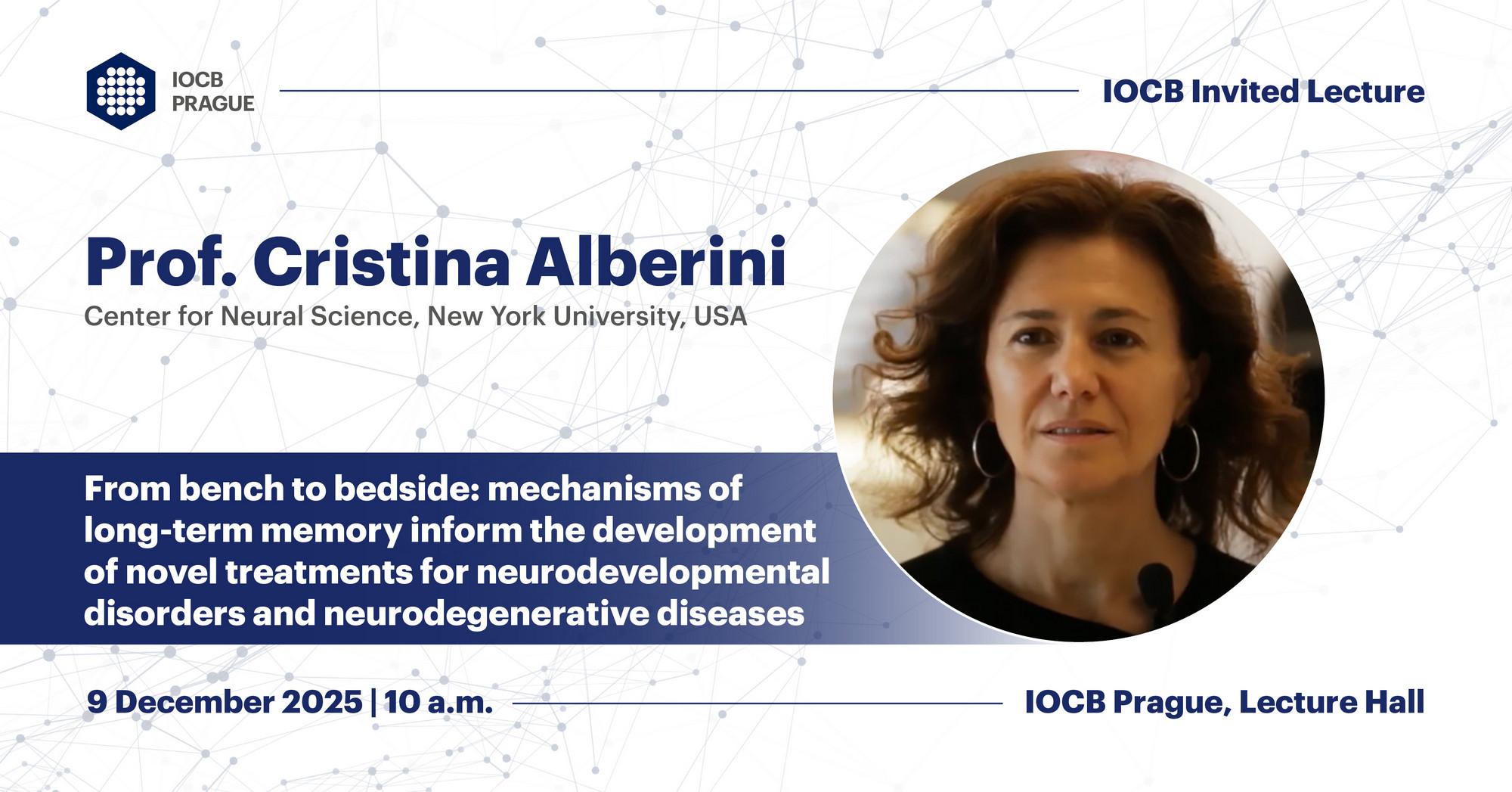
Prof. Cristina Alberini (Center for Neural Science, New York University, NY, USA)
From bench to bedside: mechanisms of long-term memory inform the development of novel treatments for neurodevelopmental disorders and neurodegenerative diseases
Přednáškový sál ÚOCHB
Abstrakt
Insulin-like growth factor 2 (IGF2), a growth factor important for development, has emerged as a critical mechanism of synaptic plasticity and learning and memory. In the stroma of brain regions important for learning and memory IGF2 is expressed at the highest levels in pericytes, the multi-functional mural cells of the microvessels that regulate blood flow, vessel formation, the blood-brain barrier, and immune cell entry into the central nervous system. Learning and neuronal activity increase IGF2 expression in pericytes, which, in turn, regulates neuronal changes. The pericytic IGF2 expression evoked by learning is required for long-term memory formation, underscoring the important role of the neurovascular unit in learning and memory. Deficits in IGF2 in the brain, serum, or cerebrospinal fluid (CSF) are associated with aging, neurodegenerative brain diseases, including Alzheimer's disease (AD), Parkinson's disease (PD), Huntington's disease (HD), and amyotrophic lateral sclerosis (ALS), and neurodevelopmental disorders such as Angelman syndrome. A common problem of these diseases is an impaired protein metabolism leading to protein overaccumulation in the brain. Administration of IGF2 enhances memory in healthy rodents and reverses cognitive impairment in aging rats as well as core symptoms in models of neurodegenerative diseases and neurodevelopmental disorders. These effects occur via the IGF2 receptor (IGF2R) – a receptor that is highly expressed in neurons and regulates protein trafficking, synthesis, and degradation. Novel synthetic small molecules targeting IGF2R are highly effective via either subcutaneous or oral administration in enhancing memories in healthy rodents and reversing core deficits of Angelman syndrome in a mouse model. These small molecules, which will be tested also in other disease models, with the goal of developing them as therapies, activate autophagy, a major protein degradation process that is linked to lysosomal targeting and endosomal trafficking. Acceleration of autophagy, which in the disease should prevent or reverse protein accumulation, could explain why activating IGF2R may have beneficial effects in many CNS diseases characterized by altered endo- lysosomal-autophagy pathway and disrupted protein metabolism homeostasis.



